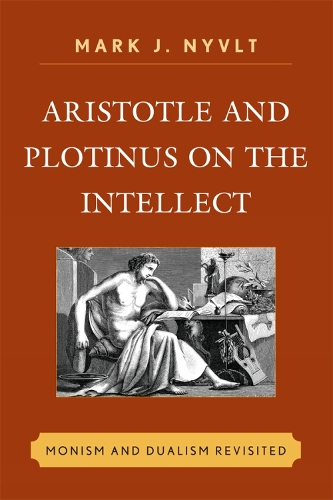
Aristotle and Plotinus on the Intellect: Monism and Dualism Revisited
(Hardback)
Publishing Details
Aristotle and Plotinus on the Intellect: Monism and Dualism Revisited
By (Author) Mark J. Nyvlt
Bloomsbury Publishing PLC
Lexington Books
17th November 2011
United States
Classifications
Professional and Scholarly
Non Fiction
Philosophy: metaphysics and ontology
Philosophy of mind
147
Physical Properties
Hardback
278
Width 164mm, Height 239mm, Spine 23mm
576g
Description
This book emphasizes that Aristotle was aware of the philosophical attempt to subordinate divine Intellect to a prior and absolute principle. Nyvlt argues that Aristotle transforms the Platonic doctrine of Ideal Numbers into an astronomical account of the unmoved movers, which function as the multiple intelligible content of divine Intellect. Thus, within Aristotle we have in germ the Plotinian doctrine that the intelligibles are within the Intellect. While the content of divine Intellect is multiple, it does not imply that divine Intellect possesses a degree of potentiality, given that potentiality entails otherness and contraries. Rather, the very content of divine Intellect is itself; it is Thought Thinking Itself. The pure activity of divine Intellect, moreover, allows for divine Intellect to know the world, and the acquisition of this knowledge does not infect divine Intellect with potentiality. The status of the intelligible object(s) within divine Intellect is pure activity that is identical with divine Intellect itself, as T. De Koninck and H. Seidl have argued. Therefore, the intelligible objects within divine Intellect are not separate entities that determine divine Intellect, as is the case in Plotinus.
Reviews
The philosophical ambitions of this study are wonderful. . . .Nyvlt tries to avoid broad strokes and boldly strides into the scholarly controversies concerning his historical study. . . .Nyvlts study will be a stimulating. . . .read for scholars interested in the philosophy of God and in ancient philosophy. Let us look forward to his future work. * Review of Metaphysics *
The strength of Nyvlts book lies in its discussion of Nous in the larger context of the
first principles of ancient metaphysics, and the extensive analysis of the historical influences
on Plotinian Nous.
When Hegel and Heidegger said of a book or play that it is an impressive technical achievement, but we are not changed by experiencing it, they claim we encounter an Erlebnis, a mere entertainment or an interlude. When they say we have been transformed by a work, we experience an Erfahrung. Plotinus and Aristotle on the Intellect is more than a highly original and insightful study of a foundational metaphysical principle, an Erlebnis. This work is among those surprising books which forces us to rethink traditional explanations of Aristotle, Alexander, and Plotinus. The author compels us to examine Nous and the One within the history of ancient philosophy and beyond. What follows from such a request is a significant transformation of our understanding of Intellects metaphysical significance. It is in this sense that this book is an Erfahrung. -- Robert M. Berchman, Dowling College and Senior Fellow at Bard College
Nyvlts opus provides us with new, creative insights into the Ancient metaphysics of the first principle. An advocate of the Aristotelian position of the supremacy of the Nous, Nyvlts comparative approach of Aristotle and Plotinus remains always fair and non partisan. His reading is scrupulous and intelligent and if one may not agree with all his conclusions, one cannot but acknowledge the solidity and subtlety of his argumentation. -- Bernard Collette, Universit Laval
Author Bio
Mark J. Nyvlt is an assistant professor at the Dominican University College, Ottawa.
